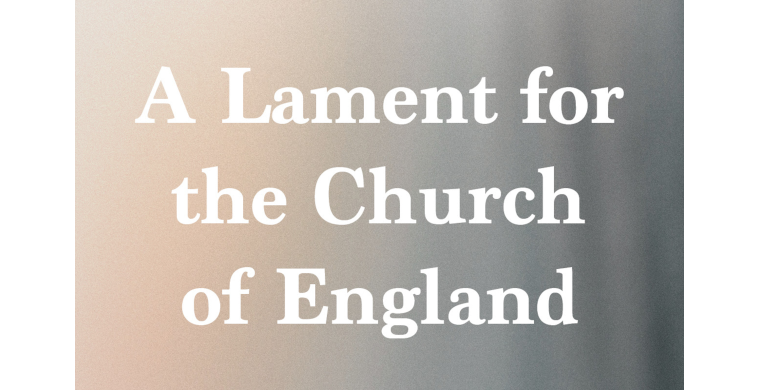A LAMENT FOR THE CHURCH OF ENGLAND
By Rev. Canon J. John
PHILO TRUST
September 1, 2023
As an evangelist of some forty years, when I stand back and look at the broad picture of our Church of England, I am sad that I find much to lament.
First, I lament a loss of clarity. What, ultimately, are we all about? This is a noisy age in which we must communicate clearly to be heard and here we are failing. In some cases, our words are confusing: we seem unable to communicate to ordinary people in ordinary words. Yet we have been given a message of good news and we must preach it. The purpose of the church is exactly as it ever was: to proclaim Christ to those who do not know him and strengthen and support those who do. Some within our church seem to think that the commands at the very end of Matthew's Gospel -- 'make disciples, baptise, teach' -- are entirely optional. No! Evangelism and discipleship are our God-given primary tasks; everything else -- vestments, liturgy, music, buildings -- is secondary.
Second, I lament a loss of coherence. It is indisputable that the vast, rambling and antiquated structure of the Church of England needed changing. But somehow, despite huge labours, the sought-after, smooth, digitised organisation run on best business practice has not materialised. From deep within the intricate machinery of governance we hear the noise of grinding gears and clashing cogs. This might be more acceptable were it not linked with a widespread sense of systems that put themselves first and human beings -- and even God -- second. Why is there so much prevarication and confusion, so many committees, such a multiplicity of working groups? Why are we subject to many attention-requiring, computer-clogging, digital demands and directives when, on the frontline, men and women who preach, pastor and pray are struggling for support?
Third, I lament a loss of confidence in our preaching. Our belief that God has uniquely spoken to humanity through his written word of the Bible and his incarnate word of Christ has, in some places, been lost entirely. More widely it has become so diluted that any gospel has become little more than a cautious, tentative proposal, hesitantly offered as an option to consider. Indeed, we have many in the church who believe that the only thing that is certain is that nothing is certain. One of the few things that our chattering world respects is a confident faith and without it we have lost any debate already. We need to recover the bold confidence in the gospel that runs throughout the New Testament. Today, so much communication at every level seems nervously crafted to deliberately avoid any offence to anyone. Historically, the Church of England looked at the surrounding culture to confront it; today it seems to look at our culture in order to find how to be concealed within it. The irony -- and it's a fatal one -- is that no one is converted from the world by an organisation indistinguishable to it.
Fourth, I miss what I can only call charm. In what we say and what we do as a church I lament the loss of the cheerful, pleasant, gracious and appealing mood that was summed up in the now rare word, winsome. The harsh mood of our world is one in which you put yourself first, shut down opposing views and, if necessary, engage in pre-emptive public revenge. Sadly, I sense this ugly, shrill mood creeping into the church. Disputes are unavoidable where truth matters and they have occurred throughout the history of Christianity, yet they must be conducted with truth and grace and concluded with forgiveness. I long for more grace and charm in what we do in the church and in how we present ourselves to the world. A failure to show even a modest level of love is a denial of who we are in Christ. And, as an evangelist, I can't resist the point that the milk of the gospel is easily soured.
Finally, and most sadly in my lament, I miss Christ. Somehow, in who we are and in who we have become, I fear we have mislaid the very one we must proclaim. There are those, even in church roles, who overlook Jesus because, ultimately, they neither believe in him nor his claims. There are those who overlook him because they have come to see the supreme task of the Church of England as organisational. There are those who have overlooked Jesus because they are distracted by the many good and honourable causes that we could support and the many evils that we should resist. Yet we are under orders: we must proclaim Christ, his cross and his crown.
Sadly, much of the Church of England has succeeded in doing what the Sanhedrin, the Roman Empire and the sealed tomb failed to do: it has kept Jesus buried. Yet he is not only our greatest hope; he is also the one we will have to give account to.
END














